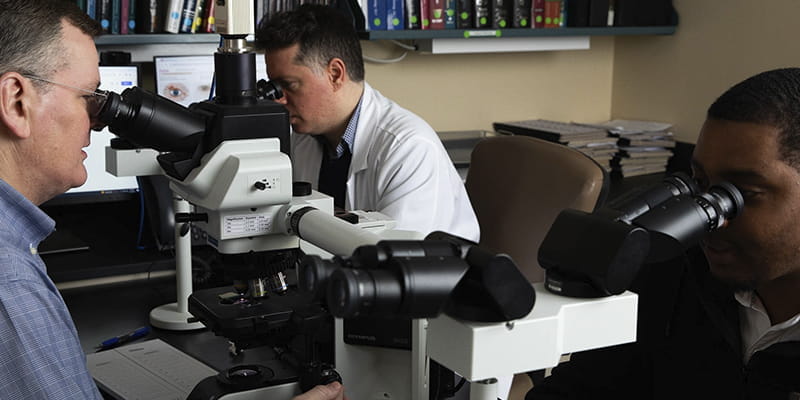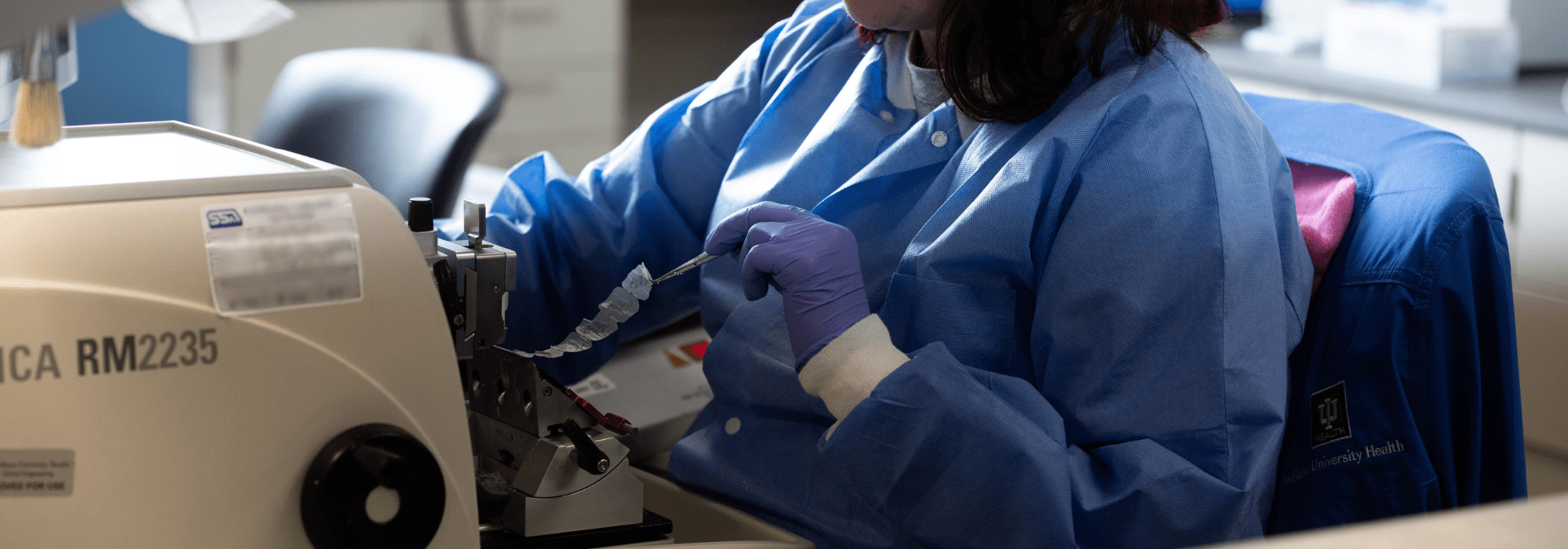Internationally renowned faculty and an outstanding team of staff members at the Department of Pathology and Laboratory Medicine lead groundbreaking research to detect diseases, guide treatment decisions, and advance medical breakthroughs. Our educators mentor students across all levels of study, from undergraduates pursuing degrees in medical laboratory science to MS-level training as pathologists’ assistants and medical students to residents, and postgraduate trainees and fellows.
IU advances pathology to identify diseases, improve treatment and discover cures. Welcome to the Department of Pathology and Laboratory Medicine at the Indiana University School of Medicine.
.jpg?rev=cbe613300f0b45c48ff449915eb51e7d&la=en&h=550&w=1500&hash=CD478DAAC795746E9E2B604C15A97492)
.jpg?rev=4d2ab9ca8c4140c09fc99853c81f8836&la=en&h=550&w=1100&hash=7B438CDBCC0F5E4622B0019485A1E142)


.jpg?rev=4473b2fb72634f55a761cae2d04368a2&la=en&h=733&w=1100&hash=43C861ED0B640070E13DBA37E6CF2489)

